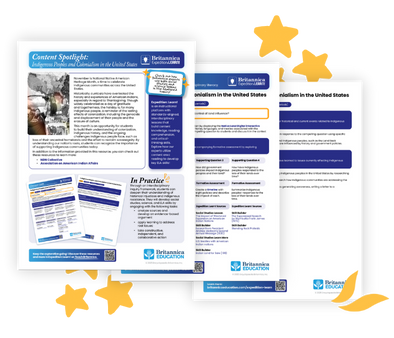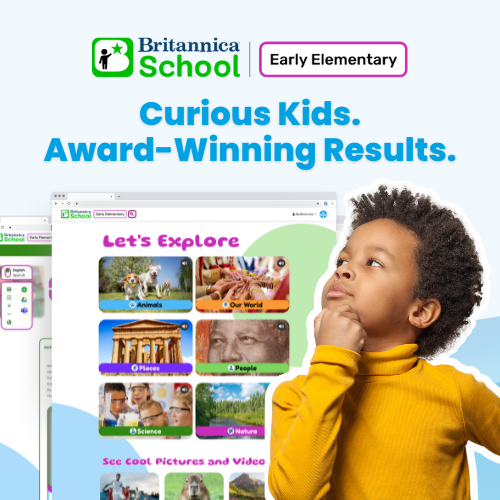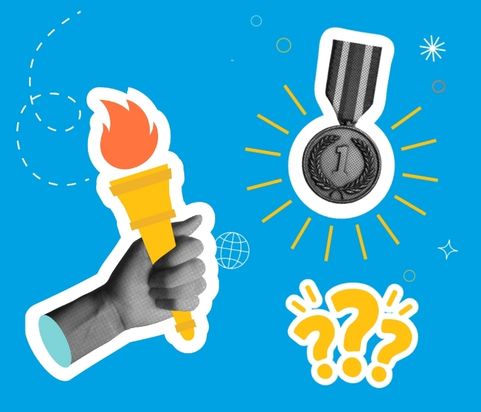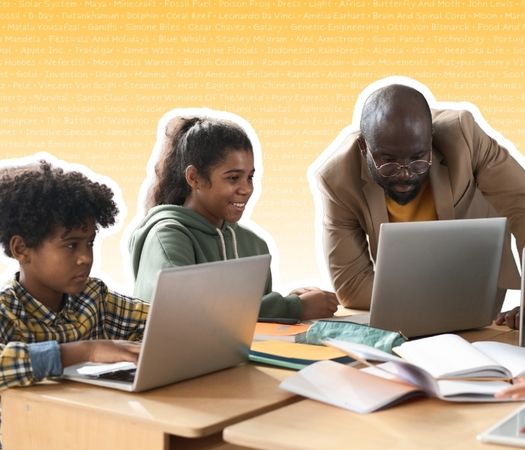
Celebrate National Native American Heritage Month with Britannica Education
Emily Campchero and Molly Rhoadhouse
Use ELA, Science, and Social Studies to Promote Inquiry
November is National Native American Heritage Month, a time to celebrate Indigenous communities across the United States.
Historically, curricula have overlooked the history and experiences of American Indians, especially in regard to Thanksgiving. Though widely celebrated as a day of gratitude and togetherness, the holiday is, for many Indigenous people, a reminder of the lasting effects of colonization, including the genocide and displacement of their people and the erasure of culture.
This month is an opportunity for students to build their understanding of colonization, Indigenous history, and the ongoing challenges these communities face, such as the loss of their ancestral homelands and how they are reclaiming their sovereignty. By understanding our nation’s roots, students can recognize the importance of supporting Indigenous communities today. Britannica Expedition: Learn! provides the ELA, social studies, and science content to build background knowledge to help understand and celebrate Native American Heritage Month.
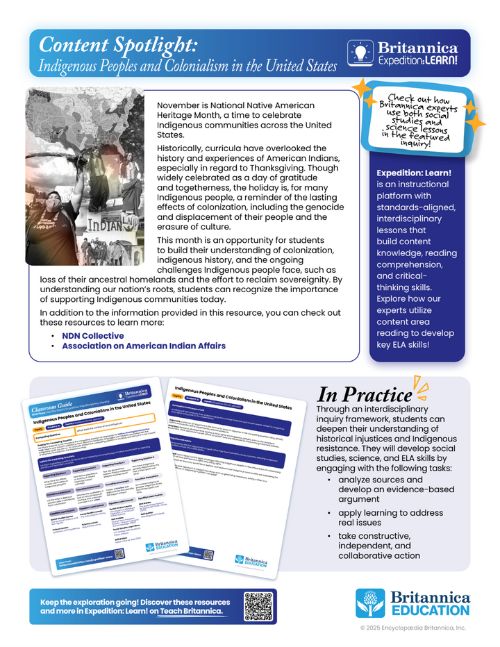
Check out how our experts use the Indigenous Peoples and Colonialism in the United States Inquiry to teach ELA, science, and social studies standards.
Interdisciplinary Literacy with Expedition: Learn!
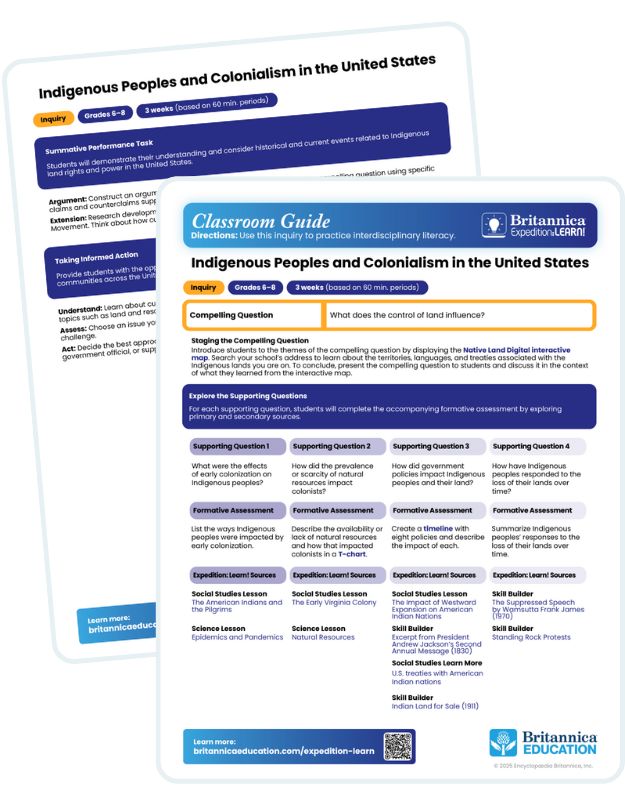
Through an interdisciplinary inquiry framework, students can deepen their understanding of historical injustices and Indigenous resistance. They will develop social studies, science, and ELA skills by engaging with the following tasks:
Integrating inquiry across ELA, science, and social studies gives students the chance to see how knowledge is interconnected. When students ask questions, gather evidence, and construct arguments across disciplines, they develop and strengthen their critical thinking and problem-solving skills. Students form a deeper and more practical understanding of complex issues, preparing them for the real world.
Expedition: Learn! is grounded in decades of research and evidence-based practice. Lessons can be used for whole-class instruction, small-group reteaching, or independent practice. Expedition: Learn! helps students develop meaningful skills that they can use in and out of the classroom, all year long! Book a demo of Expedition: Learn!

Expedition: Learn! in the Classroom
Check out ways to use the Indigenous Peoples and Colonialism in the United States Inquiry featuring ELA, science, and social studies content to drive discovery.

About the Author
Emily Campchero
Social Studies Lead Subject Matter Expert
Emily began her career working in Title I schools, specializing in gifted, MLL, and bilingual education. She has led teams to create content and curriculum at the Positive Psychology Center at the University of Pennsylvania and Teachers College–Columbia University as well as for public school systems such as the New York City and Florida departments of education and the Texas Education Agency. Emily holds a master's degree in Curriculum and Instruction from Teachers College–Columbia University and a bachelor's of science in International Trade and Marketing, with minors in Economics and Latin American Studies, from the Fashion Institute of Technology.

About the Author
Molly Rhoadhouse
Science Subject Matter Expert
After working in the field of molecular biology, Molly shifted her career focus to educational publishing. As an independent business owner for more than 20 years, she contributed to a vast number of products for clients such as McGraw Hill, Pearson/Savvas, and Twig Science. Molly joined Britannica in 2021, where she has led the Expedition: Learn science team since its inception. In addition to her degree in Life Science, Molly has a graduate certificate in Instructional Design from the University of Wisconsin.

Recent Posts

Join Our Newsletter
From tips and tricks to engaging activities, find
attention-grabbing content for tomorrow’s lesson.


